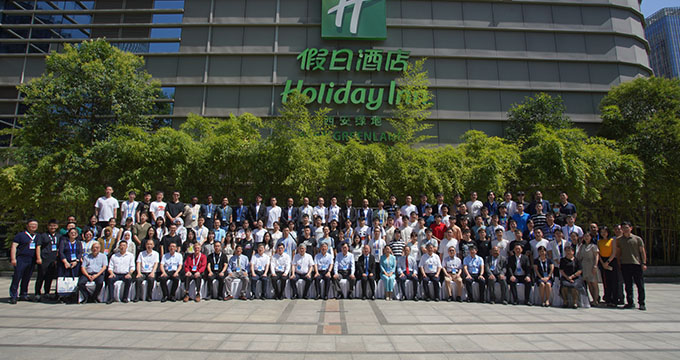

134 views||Release time: Jan 09, 2025
In the competitive world of academia, presenting at a Scopus-indexed conference is a powerful way to gain recognition, expand your network, and boost your research profile. Scopus is one of the largest and most respected citation databases, and being part of Scopus-indexed conferences gives you the chance to showcase your work on an international stage. Here’s why you should consider submitting your research to Scopus-indexed conferences in 2025 and how they can propel your academic career.

Academic Prestige and Recognition
Scopus-indexed conferences attract leading scholars and researchers from around the globe. Being selected to present at one of these prestigious events signals the academic rigor and quality of your research. It provides you with visibility among your peers and positions you as a serious contributor to your field.
Increase Your Citation Impact
One of the most significant benefits of presenting at Scopus-indexed conferences is the potential for higher citation rates. Papers presented at these conferences are often included in conference proceedings indexed by Scopus, increasing their visibility and likelihood of being cited by other researchers. This can directly enhance your research impact and academic reputation.
Global Networking Opportunities
Scopus-indexed conferences attract top researchers, academics, and professionals from across the world. Attending these events offers invaluable opportunities to network, collaborate, and discuss your research with like-minded individuals. It’s a chance to build connections that can lead to academic partnerships, research funding, and career advancements.
Exposure to Cutting-Edge Research
Scopus-indexed conferences are at the forefront of new research and innovation. By presenting your work alongside other leading experts, you gain access to the latest research trends, methodologies, and scientific discoveries. This can help shape your future research directions and keep you informed about the developments in your field.
Boost Your Academic CV
Having presentations at Scopus-indexed conferences listed on your CV can significantly boost your academic credentials. Conference presentations are highly regarded by academic institutions, funding bodies, and employers, making you a more competitive candidate for grants, positions, and collaborations.
Search on Dedicated Platforms
To make your search easier, use platforms like iconf.com to find a curated list of upcoming Scopus-indexed conferences. These platforms provide detailed information about the conferences, including submission deadlines, themes, and guidelines, making it easier for you to select the right conferences for your research.
Verify Scopus Indexing
It’s crucial to confirm that a conference is indexed by Scopus before you submit. Scopus-indexed conferences are usually clearly labeled on their websites or promotional materials. You can also check the previous conference proceedings to see if they were indexed by Scopus, ensuring that your work will be similarly recognized.
Explore Conference Call for Papers (CFP)
Many Scopus-indexed conferences have open calls for papers (CFP). Sign up for notifications or alerts from platforms like iconf.com to stay updated on new CFPs that match your research area. This ensures you never miss an opportunity to present your work at a prestigious conference.
Write a Compelling Abstract
The first step to a successful submission is a clear, concise, and compelling abstract. Ensure your abstract clearly articulates the purpose, methodology, and significance of your research. A strong abstract is crucial for getting your paper noticed by the conference reviewers.
Follow the Submission Guidelines
Each conference will have specific submission requirements regarding formatting, paper length, and submission format (e.g., PDF, Word). Make sure you carefully read and follow these guidelines to avoid any issues during the submission process. Attention to detail is key to a successful application.
Prepare for Presentation
Once your paper is accepted, preparing for the actual presentation is equally important. Ensure your slides are clear, visually engaging, and complement your research findings. Practice your delivery to make a confident and impactful presentation at the conference.
Engage with the Community
During the conference, actively engage with other presenters, attendees, and speakers. Ask questions, share insights, and build connections that could lead to collaborative research or new opportunities. Networking is an essential part of the conference experience, so make the most of it.
Presenting at Scopus-indexed conferences in 2025 can be a pivotal moment in your academic career. It provides exposure, recognition, and networking opportunities that can help you grow as a researcher and expand your professional horizons.
To get started, visit iconf.com, where you can find a comprehensive list of Scopus-indexed conferences, detailed submission instructions, and deadlines. Don't miss out on these prestigious opportunities to share your research and take your academic career to new heights.